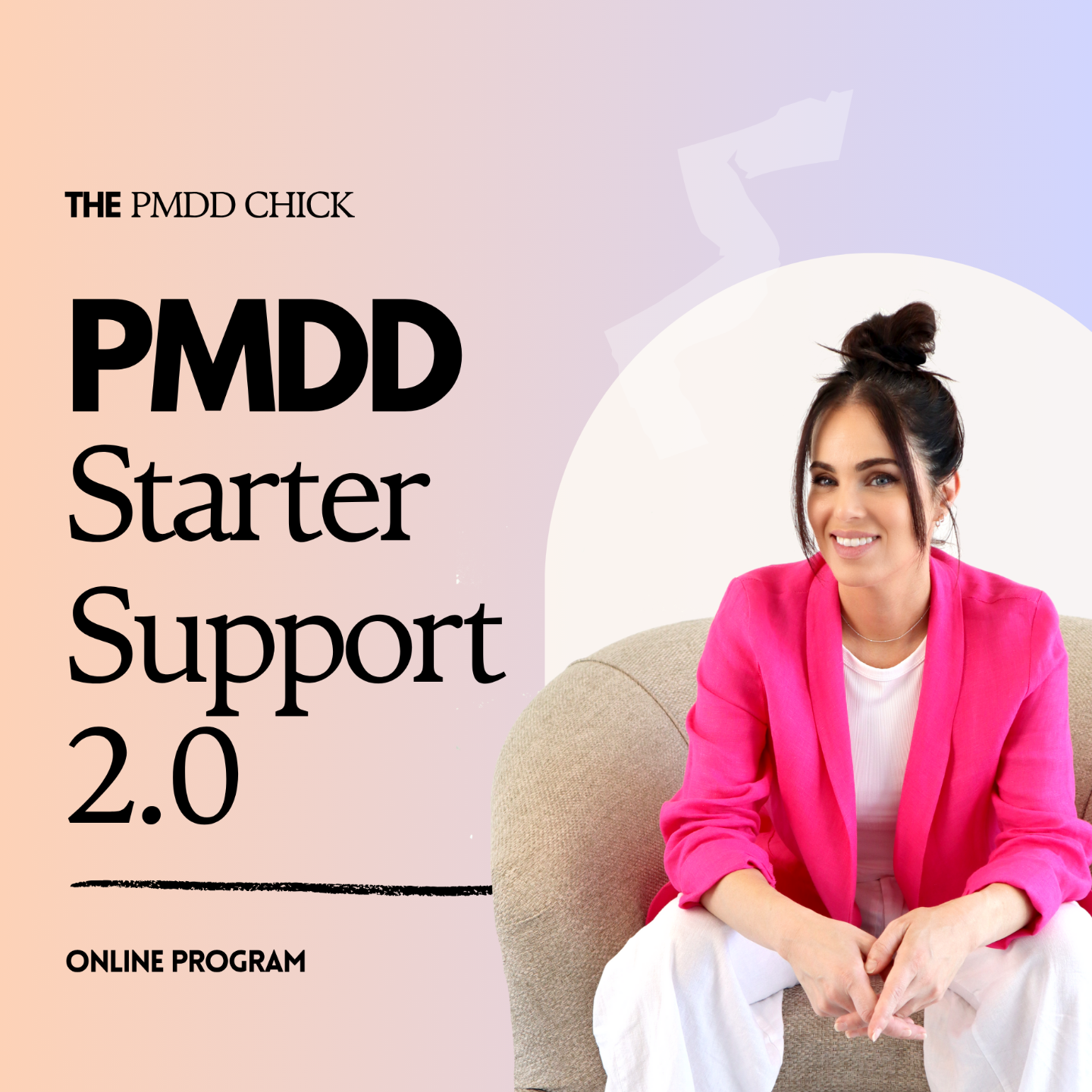About
Britney, known as "The PMDD Chick," is a dedicated Women's Health Coach specializing in Premenstrual Dysphoric Disorder (PMDD). Drawing from her own experience overcoming severe PMDD, she has become a trusted source of support and knowledge for women facing this often misunderstood condition.
As a qualified Women's Health Coach, Britney empowers women to identify and address factors that exacerbate PMDD symptoms. Empowering women to identify contributing factors that may exacerbate PMDD symptoms, Britney offers holistic, personalized solutions through her online PMDD programs, which provide practical strategies and insights to help women manage and alleviate their symptoms effectively.
Britney also hosts the "Her Health Confessions" podcast, a platform where she explores various women's health issues. Through candid conversations, she aims to educate and empower women, shedding light on the challenges they often face in silence.
Britney’s personal journey with PMDD infuses her work with empathy and expertise. Her mission is to raise awareness, provide support, and foster a community where women feel understood and find the tools they need to thrive. By sharing her experiences and professional insights, she strives to break the stigma surrounding women's health and create a space for healing and empowerment.

My Story
Let me tell you a little bit about my story and how I have managed to regain control of my life and get my symptoms under control.
When I was first diagnosed with PMDD, it felt like the weight of the world had been lifted off my shoulders. Finally, I had a name for the overwhelming, debilitating symptoms I had been experiencing for years. But that relief was short-lived, as I soon discovered that PMDD was just one of several conditions I was dealing with.
PCOS, ADHD, C-PTSD, anxiety, depression, endometriosis, MCAS, POTS, dysautonomia and a declining egg count all made my journey with PMDD even more challenging. I felt like my body was constantly fighting against me, and it was hard to see a way out of the heavy hopelessness.
But I refused to give up. I started researching every possible solution, trying every supplement and therapy I could find. I had checked myself into a mental health facility twice during the peak of my PMDD. I have been on 3 different types of antidepressants as well as an antipsychotic, all of which did not help my PMDD, if anything it made my symptoms worse. It was a long, exhausting process, but over time, I began to see results by understanding the root cause of how PMDD has manifested in the first place. My anxiety and depression became more manageable, my endometriosis pain lessened, and I even found success with improving my low egg count.

My approach to PMDD...
The approach I advocate for is one that encourages women with PMDD to first explore if they suffer from any comorbidities or genetic variations (other underlying conditions) that exacerbate PMDD symptoms. It is key to find the root cause of these underlying conditions, for example in simplistic terms, a B12 deficiency (the cause), which is known to present psychological symptoms, including depression or anxiety. By addressing this root cause a woman can reduce the associated symptoms, which during certain times of the month are heightened when PMDD is at its worst.
I had myself suffered from a very severe case of PMDD, and worked extensively with a PhD Geneticist, a Clinical Psychologist, and a Functional Medical Doctor over years to systematically uncover and reduce the many comorbidities that were contributing to my extremely distressing PMDD symptoms. These professionals feature in my free program (I don't sell anything), which is designed to inform women of the many aspects that could be making their PMDD worse from the various symptoms associated with each condition. Unfortunately most women are not encouraged by their local doctor to investigate things as simple as vitamin deficiencies (genetic or lifestyle related), diet, toxin exposures and other factors (trauma, inflammation, gut health, neuroinflammation and mitochondrial dysfunction) that make life harder when you suffer from PMDD. I want to inform women of the types of things they should be asking their doctor about.
It is important that women with PMDD feel supported, educated and empowered as I have encountered a lot of doctors who admit to not knowing much about PMDD yet will simply prescribe an antipsychotic or anti-depressant to “treat” PMDD. I don’t believe this is acceptable, and hence why I advocate for a holistic approach, supported by the medical professionals featured in my program. I don’t provide medical advice. I always encourage women to seek advice from a medical practitioner who understands PMDD and who is compassionate and willing to explore what other issues could be making that woman’s life worse. I speak from my own extensive experience, studies and from the knowledge I received from health professionals around factors that can improve PMDD (from treating comorbidities). PMDD is not well researched or understood as studies on PMDD itself are limited (likely underfunded). Hopefully with more awareness that will change.
Qualifications
Certified Women's Health and Wellness Coach (HCANZA Registered)
Diploma of Nutrition and Women's Health Coaching
Diploma of Therapy (Art)
Graduate Certificate of Mental Health and Neuroscience (Current)
Certified Functional Blood Chemistry Analysis Mastery (Current)
Bachelor of Visual Media
Bachelor of Architecture

